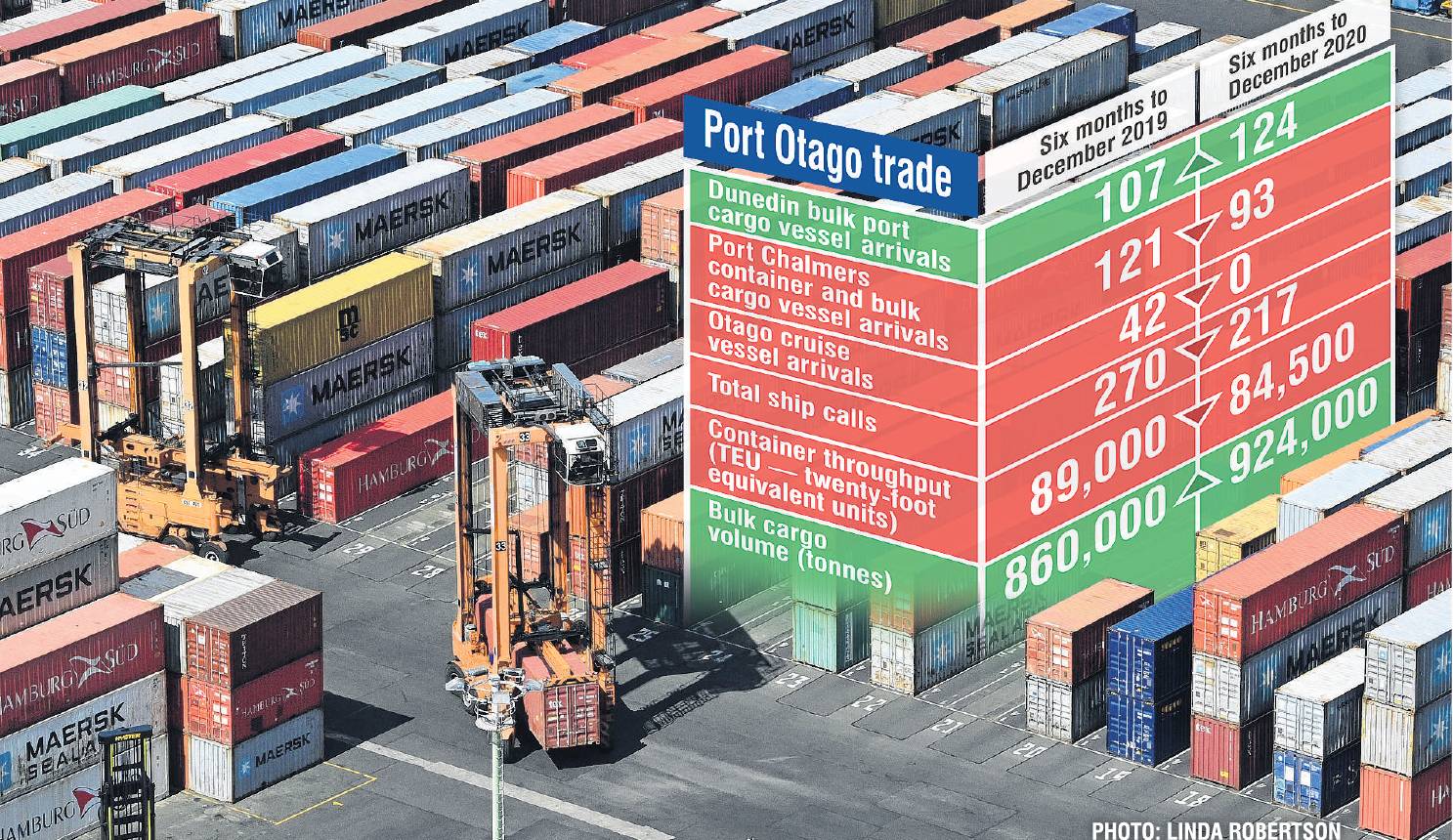
The Otago Regional Council-owned company, which cut 30 jobs in the last half of 2020, announced yesterday a $18.3million half-year profit for that period.
Company chairman Paul Rea described a 14% drop in operating profit as pleasing, given the disruption and loss of business caused by Covid-19.
An interim report issued yesterday showed a half-year operating profit of $8.4million.
The operating result was $1.4million below the corresponding six-month period in 2019.
"Our operating profit is only 14% back on the same period last year, which is a credit to everyone in the company, given the complete loss of revenue from the cruise business," Mr Rea said.
"Despite Covid hanging over us, our frontline staff have adapted to new ways of working, kept cargo moving and ensured our border is safe."

Cruise ship arrivals halted in March last year due to Covid-19 and are not expected to resume this year.
Revenue from marine and cargo services dropped 16% in the six months to December on the comparable period, due to lost income from cruise ship visits and a 5% dip in container TEU (20-foot equivalent unit) throughput.
"Like any business, you have a look at your cost base and look at efficiencies," Mr Winders said.
The company had invested in software to better manage container activity and match rosters with workflow peaks.
It was also managing fatigue, which was good for staff, he said.
The redundancies had been challenging but the company had embarked on 2021 with a better business.
Port Otago ship visits dropped to 217 for the six months to December, from 270 visits in the corresponding 2019 period.
Port Chalmers received 93 container and bulk cargo ships in the last half of 2020, down from 121.
However, log export volumes rose 19%, due in part to China’s trade stoush with Australia.
Bulk cargo volumes handled through Port Chalmers and Dunedin rose to 924,000tonnes for the six months.
Port Otago had invested over the past two years in new hardstand to store more logs at its Dunedin bulk port.
Log exporters were taking advantage of the extra capacity.
However, it was property investments that reinforced the port group’s total half-year profit to $18.3million, from $7million in the corresponding 2019 period.
The value of the group’s investment property portfolio had rocketed up $12.5million in unrealised net change.
This was built on strong demand for industrial warehouse space in Auckland and Hamilton, he said.
Looking ahead to the six months to June 30, the company expected container and bulk cargo income to be similar to the corresponding period last year.
"Congestion is a real issue on New Zealand coasts that has a knock-on effect through various ports," Mr Winders said.
"We don’t see that reverting back to normal levels for the next six months."
Port Otago was working with shipping partners and export customers to smooth out disruptions in the supply chain.
"It is coming up to our peak export season for our customers," Mr Winders said.
"That will be a challenge and I’m sure it will be a concern for our exporters as well as it is for us."
Directors declared an interim dividend of $4.5million, similar to last year’s interim dividend achieved before the effects of Covid-19.
Comments
It's great news that despite a world wide pandemic crisis causing untold death and suffering that Port Otago are still able to make such healthy profits. I only ask that they use at least some of that profit to invest into safe guarding the planets economic and environmental future. Especially in marine energy infrastructure. A future, for example, with electrified ports and low-emission ships would help eliminate the epidemic of deafening ocean noise, address environmental injustices associated with pollution in ports, make oil spills a thing of the past, and significantly reduce global emissions.
Wharfies. That's who did it.











